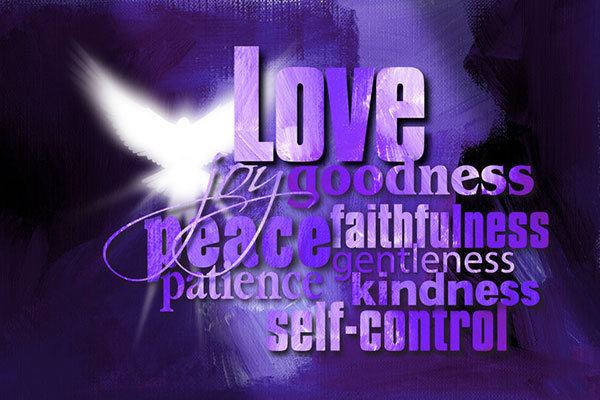The Gift Of Kindness
 I was thinking today of the many beautiful acts of kindness people have shown me since my husband passed away last year. And then, some song lyrics from the movie, The Sound of Music, came to mind:
I was thinking today of the many beautiful acts of kindness people have shown me since my husband passed away last year. And then, some song lyrics from the movie, The Sound of Music, came to mind:
Nothing comes from nothing
Nothing ever could
So somewhere in my youth or childhood
I must have done something good.
Yes, perhaps I did some good somewhere in my life, and now I am getting some of it back, tenfold, or more!
There was a period of time, after his sudden death, when it felt as if I was carried by the locals here in Spain. I was pretty much told what to do and not just offered help. For example, when I got the news of his passing from the policeman who answered his phone at the car crash scene, I immediately went on ‘autopilot’ and attempted to cancel a coffee date I had with one of my best friends. But she simply said, “I am coming, you aren’t going alone to the scene. I am going with you!” And then she saw to everything. I was unable to speak in any language at that point, and fortunately she took over.
Christmas and New Year followed, and again my friend told me, in no uncertain terms: you are going to be with me and my family during this period. I began finding reasons and excuses as to why I might not be able to get to their home, including a possibility of snow, which had us housebound for a few days a couple of years prior. But, they were having none of that. My friend’s husband said, “My tractor will reach you whatever the weather!”
Post-death paperwork is messy in a foreign country. Red tape and bureaucracy can be a nightmare in Spain, if there is no last will and testament! Once again, I was given months of unconditional help by friends and neighbors, as we went from one government department to another to sort out complications. Even the lawyers assisting with the car insurance policy, which went above and beyond their pro bono role in the arrangements. They would accept no further payment, but were delighted when I gifted them each some Doreen Virtue angel cards in Spanish.
De-Cluttering For Body, Mind & Spirit
 For me the average household chore is only temporarily rewarding, because before you know it, the serenity which comes from the cleanliness and order you’ve just created is short lived. Dust and chaos return in a flash!
For me the average household chore is only temporarily rewarding, because before you know it, the serenity which comes from the cleanliness and order you’ve just created is short lived. Dust and chaos return in a flash!
On the other hand, I find ‘de-cluttering’ much more rewarding, and more so knowing that a lot of ‘stuff’ not used in a while is either going to someone who can use it, or to help in raising funds for one of the animal charities I support.
More frequently these days, people are adopting a minimalist feng shui approach to furnishing their homes – and also in other areas of their lives – because somewhere deep down we all long for the space and lack of gadgets and stuff that our forefathers managed quite happily without.
Much has been brought to our TV screens these days in the way of reality shows about compulsive hoarding, bringing awareness about how the obsession of accumulating a vast amount of things is actually an emotional issue, rather than one of material usefulness.
Advances of modern civilization are generally limited to the material. So, our spiritual and mental progress hasn’t kept up with the material, hence people’s anguished stories, which I feel is accentuated because their spiritual development hasn’t kept up with their worldly achievements.
The benefit of clearing out that which no longer serves us helps in two major ways:
The New Earth Children
 A phone reading with a long-standing client just a few days ago made me particularly aware the special souls incarnating in recent years.
A phone reading with a long-standing client just a few days ago made me particularly aware the special souls incarnating in recent years.
The client used to be a regular at my home office years ago, until I relocated. Now we consult by phone. In those days she was approaching forty and in a high-powered job. She had been told by specialists that she had little hope of becoming pregnant.
However, about 12 years ago, the possibility of a pregnancy came up particularly strongly in her reading – more insistently than ever before. She dismissed the possibility after years of disappointment. Her sister came to me for a reading two weeks later and told me my client was still in shock after finding out that she was actually pregnant!
It was no easy pregnancy and at various stages she would come to visit me for readings, because she was curious about the little soul who seemed so determined to join her and her husband in this life. The readings revealed the old soul personality of her child and how he would be wise beyond his years. Her boy is now eleven years old and indeed wise beyond his years. He also has a master number 11 as his life path number.
Her reading recently reminded me of so many similar readings I´ve done for other parents who were to be parents of New Earth Children.
Over the years, I have encountered many spiritual teachings suggesting these ‘special children’ are playing an important role in the current global shift in consciousness and New Earth awakening. These new children have been arriving on the planet for several decades now.
In the late 80´s, a colleague of mine complained about the love-hate relationship she had with her husband. She also mentioned her eight-year-old son who was such a “wise little man” and how he would counsel them with profoundly sage remarks. “I cannot begin to imagine how this child was made by the two of us with all of our baggage,” she confessed.
The Spiritual Calling Of Animal Rescue
 I have always felt that I have two life callings: my work and taking care of rescue animals. And I aim to do both to the best of my ability.
I have always felt that I have two life callings: my work and taking care of rescue animals. And I aim to do both to the best of my ability.
A neighbor stopped me today as I was walking my dogs. This often happens when I am out with them. He asked me why I chose to walk the dogs, while I have a large plot of land for them to freely roam.
Well, they do run around on the property, at least the two younger ones do, but the pleasure of walking them is immeasurable. It is a true joy to see them relishing in the unfamiliar smells and the intriguing creatures they encounter in the countryside. They even made friends with a nearby farm’s goats and another neighbor’s cat.
I also enjoy the lovely countryside around me, which I will be less likely to experience on my own had it not been for the reminding me every day that it is time to go ‘walkies.’ Apart from the obvious exercise being advantageous for my health and well-being, it is also a sort of a meditative process and spiritual practice, because I am required to be very present in the moment.
One of my dogs is a warren hound, known in Spanish as a podenco. They are a Mediterranean rabbit-hunting dog breed. So, she’s a hunting dog and if she suddenly makes a dash to chase something, she could easily catch me off guard and pull me over. I can therefore no afford to be distracted or preoccupied. Instead, I must mindful and aware, which is very beneficial for my inner peace and spiritual alignment.
My dogs and cats are all rescues, some from unthinkably harsh backgrounds. Looking after them has involved a lot of care and veterinary visits, including many specialist observations and surgeries. When you take rescues into your home, they tend to come with much fear and many insecurities, which takes patience and unconditional love.
Two large rescue dogs, that have since departed this life to cross over the rainbow-bridge, wouldn’t allow me to touch them and refused to come inside the house. I provided them adequate shelter outside, but it still bothered me, because the winters can be harsh here in Spain.
The Lotus Flower Reading
 I recently attended an online psychic development workshop. In one of the tasks, we had to partner with another student and do a ‘flower reading.’ I know touching an object using psychometry works well in readings, but this is something else.
I recently attended an online psychic development workshop. In one of the tasks, we had to partner with another student and do a ‘flower reading.’ I know touching an object using psychometry works well in readings, but this is something else.
Our teacher paired us up and we didn’t know in advance with whom. We also had to intuitively pick a flower for our partner beforehand. At the beginning of the session, we had to show the other person the actual flower or a color photo of the flower we had chosen for them on our shared screens.
In preparation for this, I placed many pieces of paper, each with the name of a different flower on it, into a bag, shook it up, and drew one. Spirit guided me to select the Indian lotus flower or nelumbo nucifera.
When it was my turn to read for my classmate, I relaxed and observed the image of the lovely white lotus in front of me. The depth of information that came forth in the reading about her past, how her life was now, and what lay ahead, was truly amazing!
The reading revealed that she was going to be blossoming soon like the lotus, because she currently finds herself in a strong development stage. I later learned that she’d been through some dark times, almost giving up on herself. She had recently begun doing deep shadow work, as well as exploring her psychic development.
She is also recovering from a recent trauma and the lotus is traditionally known for being the ideal gift for someone recovering from any traumatic experience or physical injury. Many years ago, I attended a Yoga class during which the challenges of the lotus position was discussed in-depth. The teacher said that through proper breathwork and becoming more flexible, one’s body will allow you to achieve this pose.
I was only 19 years old at the time and not very supple. I saw no hope of achieving that position for quite some time. However, only a few classes later, we did a session during which a lot of emphasis was placed on our breathing. And to my amazement, I was able to easily get into the lotus position!


